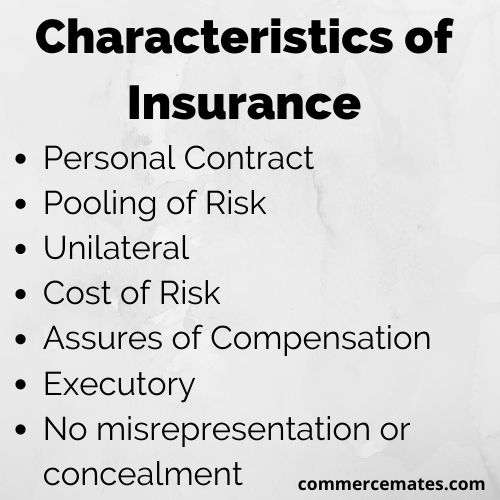Contents
Meaning of Insurance
Insurance is a means of protection from any unforeseen losses and contingencies. It is a risk-management technique used for hedging against various uncertain losses. Insurance is a contractual agreement between two parties in which one party promise to protect another party from uncertainties and losses. The first party is insurance company or insurer who agrees to protect and compensate the other party for losses suffered by it. Another one is insured or insurance policyholder who gets protection under the insurance policy in return for premium which he is required to pay regularly to the insurer.
In simple terms, insurance is just the protection against the losses. By taking insurance policy, different insurance policyholders pool their interest together. Loss suffered by any of the insured is paid out of the premium amount paid by these policyholders to the insurance company. Insurance is an effective tool to avoid losses by transferring or sharing them with other individuals. It boosts the confidence level of peoples and acts as a supporting pillar by compensating them at time of emergencies. Insurance helps in economic development of country by mobilising people’s saving by attracting them for investment in insurance policies.
Insurance companies reinvest the collected amount in different investment avenues for earning profit. There are generally three steps in insurance process: Firstly, select the insurance policy as per your needs, then you need to pay the premium amount regularly and at last claim your insured amount with the help of supporting documents in case of any unfortunate event occurs. Various characteristics of Insurance are as follows:
Characteristics of Insurance

Personal Contract
Insurance contracts are generally personal in nature. It is an agreement between the insurance company and insured and such agreement is bound by certain obligations. Both the party are required to fulfil their obligation to keep the contract legal. Insurance contract cannot be transferred to any other person without the consent of insurance policy holder. Insured is required to pay premium to insurer regularly as his part of obligation. Whereas insurer need to compensate insured in case of any losses as his part of obligation.
Pooling of Risk
Insurance are meant for pooling the risk of various policy holders. It helps in the reducing the adverse effect of heavy losses on single individual on occurrence of any contingency. Insurer compensates the insured for the losses incurred by him out of premium paid by different policy holders. Premium paid by different policy holders is used for recovering the losses incurred by insured individuals. This way risk of single individual is pooled among different individuals and its effect is minimized.
Unilateral
Insurance contracts are unilateral. This means that both the parties(insurer and insured) who enter into insurance contracts are equally bound to perform their respective obligations. Insured need to pay the decided policy premium without any default. Policy premium is the cost for protection against losses provided by insurer. Insured is required not to pay any cost other than policy premium. Similarly, insurer has the right to compensate the insured for losses and damages arising out of contingency. It is their legal duty in exchange for the premium they are charging.
Cost of Risk
The cost of risk in insurance contract is the value of insurance object. Insurance companies before entering into contract properly evaluates the value of subject matter of insurance contract. Proper knowledge of insurance object enables the insurer in calculation of right premium amount to be paid by insured. Higher the risk associated with insurance object, higher will be premium charged. On the other hand, lower risk invited low premium by insurer from insured.
Assures of Compensation
Insurance policies assures the policy holder of compensation in occurrence of losses and damages. These policies are taken by insured to seek protection from future risks and uncertainties. Insurance companies guarantee the people for compensating them for losses. They assure to bring them back in their original position in which they were before occurrence of such losses. Assurance for compensation by insurer motivates people for investment in insurance policies.
Executory
Insurance contacts are executory which means compensation is paid only on occurrence of the contingency. It is included in agreement done that insured is liable to claim for compensation from insurer only if he incurs losses. Insured cannot profit from the insurance policies and can be compensated for losses only. If any contingency do not occur then insurer is not liable to pay any compensation.
No misrepresentation or concealment
Insurance contract is assumed to be free from any misrepresentation and concealment of information. Any misrepresentation or concealment of facts from both insurer and insured side will make the insurance contract void. Insured is required to disclose full information regarding insurance object fairly to insurer. Similarly, insurance companies are required to explain clearly the terms and conditions of insurance contract to insured.